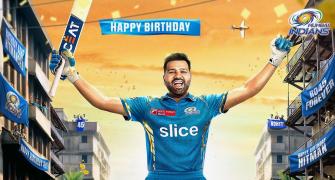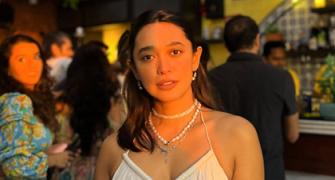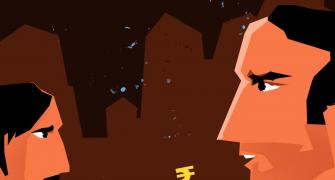 Q: What do you do for an encore when your first album is impossible to top?
Q: What do you do for an encore when your first album is impossible to top?
A. More of the same.
The most surprising thing about Norah Jones's second album, Feels Like Home (Blue Note Records, 2004), is how similar it sounds to her first.
But then why wouldn't it? Come Away With Me (Blue Note, 2002) was a global event. With little more than word of mouth advertising, it sold 18 million copies, and has been lodged in Billboard's album charts for more than 100 weeks at last count.
| |||||||||||
The record label has billed Feels Like Home as a major departure. In fact, it is nothing of the sort. If Come Away With Me was a kind of Prozac for the ears, so, most decidedly, is the second album. And, after all, what's wrong with medication, particularly in a post-September 11 world?
The album's most uptempo tunes are Sunrise and What am I to you? The first co-written by Jones and boyfriend and bassist Lee Alexander, and the second by Jones alone. But an uptempo Norah Jones song is not something that
will have them dancing in the aisles. It is still nocturnal music, made for falling asleep to, and the voice is exactly the same as it was the first time: warm, untroubled, evocative of headlights on a highway very late at night. Unlike, say, Lucinda Williams or Rickie Lee Jones, who create night music for the damned, Jones makes late-night make-out music for the eternally hopeful.
Not that the new album is exactly the same as the debut. Eight Grammies and millions in sales will change things, even if the song remains the same. For one thing, Jones now rates the kind of special guest most musicians can only dream about.
What am I to you? features Levon Helm and Garth Hudson, from Bob Dylan's old backing band The Band, on drums and keyboards. Country icon Dolly Parton is a guest vocalist on the bluesy In the morning. And Tom Waits, the reclusive poet and songwriter, contributed the unusually dark (for Jones) The Long Way Home.
The song, of course, is standard Waits: all breathlessness and bile. But Jones's version has a charm all its own, and it may lie in hearing a ghost of Waits's fractured growl behind her trademark sweetness-and-night delivery.
In Waits's world of lonesome drunks, bad livers and broken hearts, "a head full of lightning" is a reference to drinking too much cheap whiskey. Coming from Jones it is nothing if not incongruous: "Money's just something you throw/ Off the back of a train/ I've got a head full of lightning/ And a handful of rain/ And I know that I said I'd never do it again/ Well I love you sweet baby/ But I always take the long way home."
The Parton-Jones duet is a standout track. It is also the bravest thing on the album. Parton is a powerhouse vocalist. If the song were a wrestling contest she would be the undisputed champ. As it is she gives the song a punch and power the rest of the album lacks. But Jones is a good sport; she allows the older woman to stretch out, while she stands back and does her soft thing. The track ends with laughter: it is Parton and she sounds justifiably pleased with herself.
The other covers on the disc are of Townes van Zandt and Duke Ellington. Van Zandt has been a favorite with young rockers since the days of the Cowboy Junkies, whose singer, Margo Timmins, is a kind of spiritual forbear to
Jones. Zandt's Be here to love me is stripped of allegory in Jones's version but she manages, meanwhile, to bring out its inner torch song. Ellington's Melancholia has been given lyrics by Jones and retitled Don't miss you at all. It is a lovely jazz-tinged piece of heartbreak.
The instrumentation on the album is mostly acoustic, with box drums and upright bass. But her band is more upfront than it was on her debut effort. Renamed The Handsome Band, they are hard-working journeymen who make up in
reliability what they lack in flair. Jones plays a Yamaha piano, a Wurlitzer electric piano, and brief snatches of pump organ. While her keyboard technique is not ambitious -- she sometimes sounds much too much like a lounge pianist in a low-rent club -- it works well enough with her defiantly low-key vocals.
Jesse Harris, who wrote the first album's best-known tracks, is a guest musician here, though he has written none of the songs. In that sense the album adresses one long-standing criticism about Norah Jones -- that she is not much of a songwriter. Of the 13 songs on the album she has written or co-written six. While that proves she can write songs it does not prove she can write a song with the hit potential of Harris's Don't know why.
Not that it matters. Jones is a young musician at the beginning of her career. We may as well get used to her: she's going to be around for a while.
Photo: Stephen J Boitano/Getty Images







